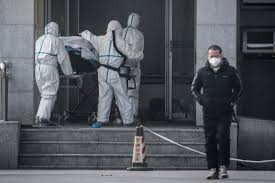Since the outbreak of the new coronary pneumonia, mainland China has initiated a public health emergency. Local governments generally required companies not to resume work earlier than 9 February 2020, of which Hubei Province even required companies not to resume work earlier than 13 February 2020.
It is not difficult to imagine that the outbreak of NCP (including relevant measures taken by the government, collectively referred to as the outbreak of “NCP”)), seriously affected the performance of many civil and commercial contracts.
1. The urgent question therefore is the following:
Does the outbreak of NCP and related prevention and control measures constitute an event of “force majeure”?
On 31 January 2020, the World Health Organization declared the outbreak of NCP a “public health emergency of international concern” (“PHEIC“). In accordance with the provisions of the International Health Regulations, “public health emergency of international concern” means an unusual event that constitutes a public health hazard to other countries through the international spread of a disease and may require a coordinated international response.
On 20 January 2020, the National Health Commission of the PRC classified NCP a class B infectious diseases as stipulated in the “Law of the People’s Republic of China on the Prevention and Control of Infectious Diseases”, and adopted prevention and control measures akin to a Class A infectious diseases, please check our previous post: China Classifies Coronavirus as Category B Infectious Disease for details. This is similar to the situation in 2003 when “SARS” broke out. Which means, although NCP and SARS are class B infectious diseases, prevention and control measures are implemented and adopted in accordance with the elevated standards of a Class A infectious disease.
To answer our question, let’s have a look at the definition of force majeure in Chinese law. According to Article 180 of the General Principles of Civil Law: “Force majeure refers to an objective situation that is unforeseeable, unavoidable and is not able to be overcome.”

We believe that, in view of the similarity between the outbreak of NCP and the 2003 outbreak of SARS, we may refer to the opinion of the Supreme People’s Court for the characterization of the SARS outbreak to determine the nature of NCP and the legal relevance related to contractual disputes caused by the outbreak. To this end, a lot can be learned from the “Notice of the Supreme People’s Court on the Conduct of the Relevant Trials and Execution of the People’s Court in accordance with the Law during the outbreak of SARS” [Law No. 72(2003)] (“Notice“). In this Notice, the Supreme Court has made it very clear that if the contract cannot be performed or the parties to the contract cannot perform the contract at all due to the SARS outbreak, it may be regarded as “force majeure”.
2. Not all defaults are exempt from performance liability?
However, although the outbreak of NCP can be characterized as an event of “force majeure”, whether it will be recognized as force majeure in a specific contractual dispute and thus constitutes a statutory exemption from liability for breach of contract, still needs to be determined in combination with the fundamental purpose of each individual contract and its performance obligation in light of other factors. As a matter of fact, many disputes occur in the existence of a causal relationship between the force majeure event and the failure of contractual performance.
In addition, in accordance with the provisions of the Contract Law of the People’s Republic of China, the party experiencing a force majeure event is liable for timely notice to the other party, reducing or controlling losses and providing proof within a reasonable period of time. In the event that a party fails to mitigate the losses that may have been inflicted upon the other party in a timely manner, they shall still be liable for so-called “extended” losses. Furthermore, if force majeure occurs after the party already delayed performance (!), liability for breach of contract cannot be exempted.
In our next post, we’ll study selected cases to make sure our audience is familiar with China’s judicial perspective on “force majeure” and similar cases.
Related provisions in Contract Law of the PRC:
Article 117. Where it is not possible to perform a contract due to force majeure, then, depending on the extent of the force majeure, the performing party shall be partially or wholly excused from liability, except where laws provide otherwise. Where force majeure occurs after a party has already been late in performing an obligation, the said party will not be excused from liability.
In this Law, “force majeure” means a situation which, on an objective view, is unforeseeable, unavoidable and is not able to be overcome.
Article 118. Where one of the parties is unable to perform the contract due to force majeure, the said party shall immediately notify the other party in order to reduce the potential losses sustained by the other party, and the said party shall also provide evidence of the force majeure within a reasonable time.
Useful link:
The Supreme People’s Court of The People’s Republic of China

